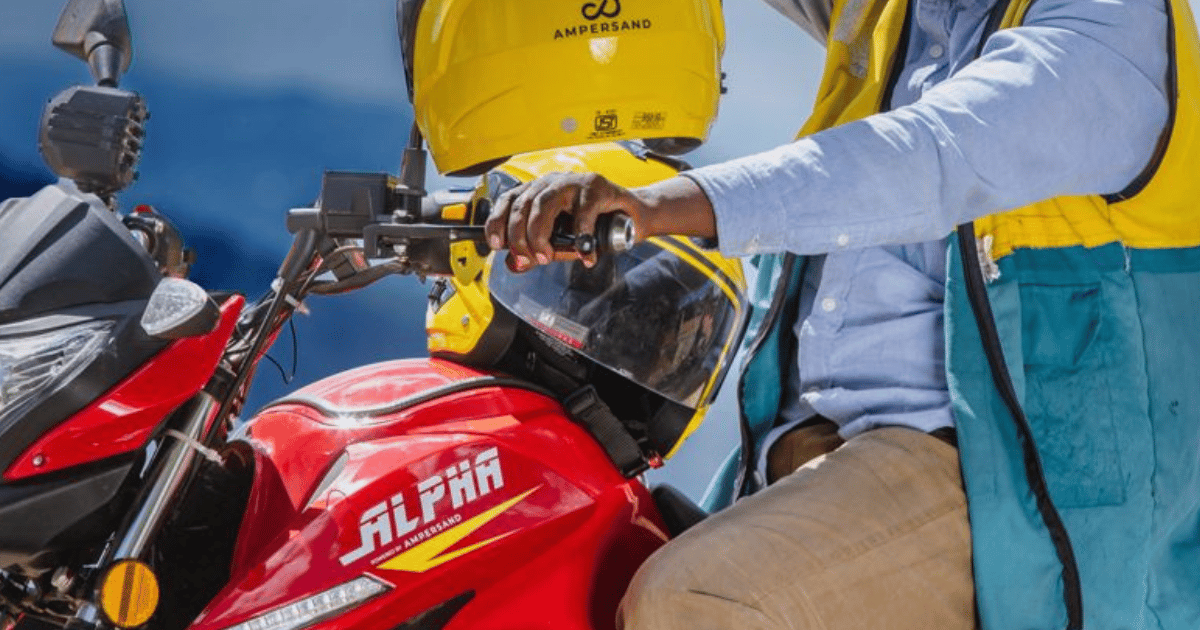- Mobility Rising
- Posts
- Ampersand headlines August capital raise
Ampersand headlines August capital raise

From the newsletter
Electric mobility company Ampersand secured the only funding deal in the sector in August, securing an estimated $10 million, data from The Big Deal Africa shows. That is 23% more than what EV companies raised in July, when total funding to the mobility sector stood at just $8.1 million. AfriCar Group also acquired Ivory Coast-based car price comparison company Koto.
August’s funding landscape contrasts with July, during which 12 different companies got cash. Ampersand’s latest deal brings the total funding to the electric mobility sector to $129 million in 2025.
The funding received by Ampersand last month was in the form of equity, mainly from British International Investment (BII). In the previous month, a mix of equity, debt and grants was raised in the sector.
More details
Ampersand’s new funding round including $7 million from British International Investment (BII) and new equity investments from Seedstars Africa Ventures, a pan-African venture capital fund, Gaia Impact , an impact advisory firm investing in the just energy transition, the Rwanda Green Fund, and Raspberry Syndicate. The company also received increased investments from existing partners including Ecosystem Integrity Fund, AHL Ventures, Acumen, HEHF, and TotalEnergies.
The company, which was founded in 2016, has been one of the biggest electric mobility fundraisers in recent years, helping it to grow quickly. Over the last 24 months alone, Ampersand has raised more than $28.5 million in debt, equity and grants. The company, which has a fleet of around 8,000 batteries, says the new funding will help it to double its battery fleet size to over 30 MWh by early 2026 with over 35,000 battery swaps daily.
Last month, Africar Group Pty Ltd, the company behind Auto24.africa, a leading marketplace for certified pre-owned cars including electric cars, acquired Koto, a platform for new car prices in Ivory Coast for an undisclosed sum. Backed by global automotive leader Stellantis, Auto24.africa is now present in five African countries—Ivory Coast, Morocco, South Africa, Senegal, and Rwanda, and continues its rapid expansion across the continent.
Despite the increase in the funding size, the sharp drop in the number of deals in August highlights the challenges that EV companies are facing in raising capital. Debt financing has especially been scarce in recent months. It was only in July that we saw debt funding make a comeback as Ugandan electric motorcycle company Zembo secured a $1 million loan from Dutch development lender FMO.
Grants had also dried up, but this funding type also returned in July when five companies raised a total of $1 million from Powering Renewable Energy Opportunities (PREO), funded by UK aid via the Transforming Energy Access platform and the IKEA Foundation. Each company got $0.2 million. They are Kenya-based electric motorcycle companies Kiri EV, Stima Mobility and Ecobodaa, Benin’s battery swapping company ZED Motors and Ethiopia’s electric three-wheeler company S&Y Electrical Material.
Africa’s EV sector faces a major funding gap, which has constrained investments in charging and swapping infrastructure. Inability to raise new capital has slowed down the expansion of many EV startups, while others have been forced to downsize or close after failing to convince investors. However, investors are expected to gain more confidence in the sector as EV startups start to make profits.
Our take
Ampersand’s latest funding round indicates that investors may be becoming more selective. They are likely favoring established companies with a clear business model, strong market traction, and a large existing fleet.
Blended finance, which combines concessional public or philanthropic funds with private capital, is becoming essential for attracting the large-scale investment needed for asset-heavy businesses like EV charging and battery swapping. This will help mitigate the high-risk perception that deters many traditional investors.
Electric motorcycle companies have been dominating funding deals in Africa compared to companies that focus on other EV models like buses, cars, trucks and vans. This will continue due to the clear business case and large market size of motorcycle taxis.